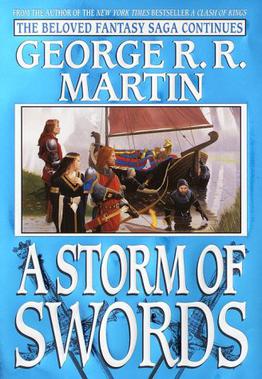Currently cycling through these, chapter for chapter...
















rasetsu wrote:I recently acquired an electronic copy of Iris Murdoch's Nuns and Soldiers, one of my all time favorite novels. I hope to reread it sometime this year (reading number 4).
Currently reading Steven Pinker's Better Angels Of Our Nature, and I'm only a few pages into the preface, but am pleasantly surprised by the high calibre and edibility of his writing.
I read one Pinker book before, long ago, and hated it. I'm looking forward to all 700 pages of this, but wish he could have condensed it just a little more.
My humanist group is reading Nonbeliever Nation: The Rise of Secular Americans, which is good — and chock full of facts and arguments sure to warm the cockles of any atheist's heart — but the writing itself is a little uninspired. I'm about halfway through it.
I'll be reading part 3 of Hume's Treatise for another group, as well as finishing the latter half of Damasio's Self Comes To Mind for another. One book club is reading the Henrietta Lacks book, but seem to be neglecting to schedule the actual book discussion, so I'm deferring reading that until something gets scheduled. Beyond that, in January I have Jane Austen's Emma, as well as desiring to get some personal reading done (especially a book by Steven Collins, Selfless Persons, about the Buddhist doctrine of Anatta and related matters, as well as the final cycle of the Thomas Covenant the Unbliever Chronicles, which I just discovered; alas, I have no discipline when it comes to reading for personal reasons).
I've only got as far as the first 'chapter,' but it looks like not only an easy read, but an interesting one. http://www.spring.org.uk/2008/02/7-sins ... -guide.phpThe 7 Sins of Memory"Memory itself is an internal rumour." --George Santayana
The word rumour captures an aspect of memory perfectly. When we delve backwards, moments never return in their original clarity; they return as rumours of the original event. Faces have been switched, names deleted, words edited - sometimes it's as though we weren't even there.
Psychologists have found that right from the moment an event occurs, is laid down in memory (or not), to the moment we try to retrieve it (or can't), our minds are fallible. Harvard psychologist Professor Daniel L. Schacter has classified memory's slips, ambiguities and downright lies into the 'seven sins of memory': transience, absent-mindedness, blocking, misattribution, suggestibility, bias and persistence (Schacter, 1999).
But despite these 'sins', we still get by. Memory is what makes us who we are. Practically it enables us to function in everyday life. Without it we would be lost, like those with severe amnesia who can't remember who they are or achieve even the simplest of tasks. So how can memory's fallibility be reconciled with its abilities?
This series of posts explores these sins and in turn uncovers some bizarre stories as well as shedding light on everyday occurrences. The surprise is that many sins of memory have a redeeming feature; sometimes the very sin itself is the flipside of one of memory's saintly qualities, one we couldn't do without.
1.How Quickly We Forget: The Transience of Memory
2.Absent-Mindedness: A Blessing in Disguise?
3.On the Tip-of-the-Tongue: Blocked Memories
4.How Memories are Distorted or Invented: Misattribution
5.When Suggestibility is a Liability: Wrongful Convictions ■Wrongful Conviction: 50% of Mistaken Eyewitnesses Certain After Positive Feedback
■Implanting False Memories: Lost in the Mall & Paul Ingram
■Therapists Can Implant False Beliefs and Memories
6.How the Consistency Bias Warps Our Personal and Political Memories
7.The Persistence of Memory
The Pope was today knocked down at the start of Christmas mass by a woman who hopped over the barriers. The woman was said to be, "Mentally unstable."Trolldor wrote:Ahh cardinal Pell. He's like a monkey after a lobotomy and three lines of cocaine.
Cormac wrote: One thing of which I am certain. The world is a better place with you in it. Stick around please. The universe will eventually get around to offing all of us. No need to help it in its efforts...
His analysis, in my view is very insightful.redunderthebed wrote:Noam Chomsky 9-11 was there an alternative?
Just read it it is awesome if you want a different view on war on terror and 9-11 in a pretty accessible format (it's a collection of essays and newspaper interviews) i highly recommend it.
Now to find all his other books and read them (he recommend them all in his recommended reading list).
Users browsing this forum: No registered users and 17 guests